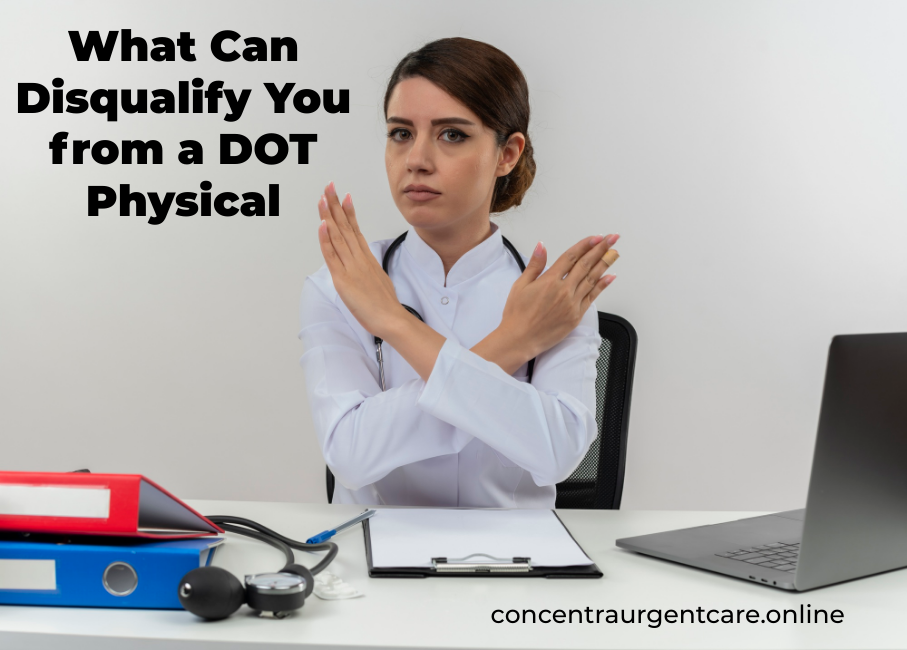The CVS DOT Physical Process
Last Updated on August 20, 2023 by Lily
For commercial drivers, meeting the health requirements for safe and responsible driving is of paramount importance. The CVS DOT physical process is designed to ensure that drivers are physically and mentally fit to operate vehicles on the road. This article takes an in-depth look at each stage of the process, providing commercial drivers with a comprehensive understanding of what to expect.
Introduction to the CVS DOT Physical Process
As commercial drivers play a crucial role in maintaining road safety, the CVS DOT physical process is a vital step in ensuring their fitness for duty. This comprehensive examination evaluates various aspects of a driver’s health and well-being to confirm that they can perform their responsibilities safely and effectively.
Check-In and Registration
The CVS DOT physical journey begins with check-in and registration at the designated location. Upon arrival, you’ll be greeted by the reception staff who will guide you through the process. It’s essential to have your driver’s license, medical history, and any relevant documents ready for review.
Medical Examiner Introduction and Discussion
Meeting with the medical examiner is the next step. This is an opportunity to discuss any pre-existing medical conditions, recent health concerns, or medications you may be taking. Open communication during this stage ensures that the examiner has a comprehensive understanding of your health background.
Vision and Hearing Assessments
The ability to see and hear clearly is crucial for safe driving. During this stage, the medical examiner will conduct vision tests to assess your visual acuity, peripheral vision, and color perception. Similarly, hearing assessments determine your ability to hear essential auditory cues on the road.
Blood Pressure and Cardiovascular Evaluation
Maintaining optimal cardiovascular health is paramount for long hours of driving. The medical examiner will measure your blood pressure to ensure that it falls within acceptable ranges. This evaluation helps prevent potential medical emergencies while operating a commercial vehicle.
Diabetes Management and Blood Sugar Check
For drivers with diabetes, proper management is essential. The medical examiner will evaluate your diabetes management plan and check your blood sugar levels to ensure they are within acceptable limits. Managing diabetes effectively contributes to safe driving and overall well-being.
Respiratory Health and Lung Function
Breathing adequately is essential for drivers who spend extended periods on the road. The respiratory health assessment evaluates lung function to ensure you can breathe comfortably under various conditions and during long drives.
Neurological Function and Reflexes
Quick reflexes and coordination are imperative for safe driving. The neurological assessment examines your reflexes and coordination, ensuring that you have the physical ability to respond effectively to unexpected situations on the road.
Musculoskeletal Fitness and Physical Abilities
Operational fitness involves more than just cognitive skills. The musculoskeletal assessment evaluates your physical abilities, ensuring that you have the strength and mobility required to handle the demands of commercial driving.
Mental and Emotional Well-being
Sound decision-making and cognitive abilities are integral to responsible driving. The mental and emotional assessment evaluates your cognitive function and mental well-being, contributing to safe and reliable driving practices.
Discussion of Findings and Recommendations
Following the evaluations, the medical examiner will discuss their findings with you. If you meet the necessary health standards, you will receive feedback on your performance. If any concerns or recommendations arise, the medical examiner will provide guidance on necessary follow-up actions.
Certification and Documentation
If you meet the health standards set for commercial driving, the medical examiner will provide you with a DOT physical certificate. This certificate is a vital document required for your commercial driving responsibilities. It serves as proof that you have successfully passed the examination and are fit to operate commercial vehicles.
By understanding and actively participating in the CVS DOT physical process, commercial drivers can ensure they are physically and mentally prepared for their important responsibilities. Navigating this process contributes to road safety and the well-being of all those who share the highways.
FAQs:
-
What is the purpose of the CVS DOT physical process?
The CVS DOT physical process evaluates the health and fitness of commercial drivers to ensure their capability to operate vehicles safely and responsibly.
-
What should I bring with me for the CVS DOT physical appointment?
Bring your driver’s license, medical history, medications list, and any relevant medical records to provide accurate information to the medical examiner.
-
What happens during the vision and hearing assessments?
The medical examiner will conduct tests to evaluate your visual acuity, peripheral vision, and hearing abilities to ensure they meet the required standards.
-
Why is cardiovascular evaluation important for commercial drivers?
Cardiovascular health is assessed to ensure that drivers can handle the physical demands of long hours of driving without experiencing heart-related complications.
-
What is the significance of diabetes management and blood sugar checks during the CVS DOT physical?
For drivers with diabetes, managing the condition and maintaining blood sugar within acceptable ranges are critical for safe driving.
-
How are neurological function and reflexes assessed?
Neurological assessments evaluate your coordination, reflexes, and overall neurological health to ensure safe and effective driving.
-
What can I expect during the musculoskeletal fitness assessment?
The musculoskeletal fitness assessment evaluates your physical ability to handle the demands of operating a commercial vehicle.
-
How does mental and emotional well-being impact the CVS DOT physical process?
Cognitive function and mental health assessments ensure that drivers are in a suitable mental state for safe and responsible driving.
-
What happens if I meet the necessary health standards during the CVS DOT physical?
If you meet the health standards, you will receive a DOT physical certificate, which is essential for your commercial driving responsibilities.
-
What if I have health concerns or don’t meet the necessary standards during the CVS DOT physical?
If you have health concerns or do not meet the required standards, the medical examiner will provide recommendations for further evaluation or follow-up.


